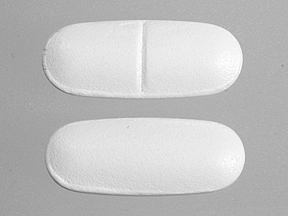
Pure Calcium Carbonate Coupons & Savings Card – Discount Prices from $2.74
Brand for: Calcium carbonate
This medication is used to prevent or treat low blood calcium levels in people who do not get enough calcium from their diets. It may be used to treat conditions caused by low calcium levels such as bone loss (osteoporosis), weak bones (osteomalacia/rickets), decreased activity of the parathyroid gland (hypoparathyroidism), and a certain muscle disease (latent tetany). It may also be used in certain patients to make sure they are getting enough calcium (such as women who are pregnant, nursing, or postmenopausal, people taking certain medications such as phenytoin, phenobarbital, or prednisone). Calcium plays a very important role in the body. It is necessary for normal functioning of nerves, cells, muscle, and bone. If there is not enough calcium in the blood, then the body will take calcium from bones, thereby weakening bones. Having the right amount of calcium is important for building and keeping strong bones.
Our Pure Calcium Carbonate coupons are free to use. You can print the coupon, email it to yourself, or receive the Pure Calcium Carbonate coupon via text message. To get your free discount, show the pharmacist your Pure Calcium Carbonate savings card which has the discounted coupon price. Use our filters below to edit the prescription box to match your needs. The Pure Calcium Carbonate prices will update based on your prescription needs. Above our Pure Calcium Carbonate coupons, you can change the location to see pharmacy prices in other areas. Our prescription discount card will update online with the specific pharmacy costs associated with your edits. Be sure to text, email, or print the Pure Calcium Carbonate savings card code that you need after editing the prescription box and location field. Show the discount card to your pharmacist before paying.
My prescription
Edit
1500 (600 Ca)MG, Calcium Carbonate (30 Tablets)
Select pharmacy

Walgreens
$2.74
COUPON PRICE
Albertsons
$4.50
COUPON PRICEPure Calcium Carbonate savings card
Show this card to your pharmacist
Walgreens
$2.74
BIN
ID
PCN
GRP
019876
LH372D8BA7
CHIPPO
LHX
Powered by
Pure Calcium Carbonate FAQs
Using the SaveHealth discount card, what is the price of Pure Calcium Carbonate without insurance?
Using the SaveHealth discount card, the price of Pure Calcium Carbonate without insurance is $2.74.
What is the price of Pure Calcium Carbonate at Walgreens?
The price of Pure Calcium Carbonate at Walgreens is $2.74.
